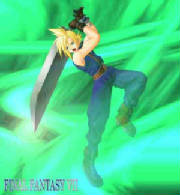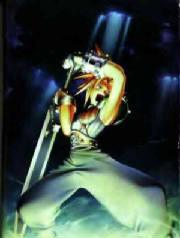|

AFTER VISITING THE TOMB OF NAPOLEON- (1769-1821)
A little while ago I
stood by the grave of Napoleon,a magnificent tomb of gilt and gold,fit almost for a dead deity,and gazed upon the saracophagus
of black Egyptian marble where rests at last the ashes of the restless man.I leaned over the balustrade and thought about
the career of the greatest soldier of the modern world.I saw him walking along the banks of the Seine contemplating suicide;I
saw him at Toulon;I saw him putting down the mob in the streets of Paris;I saw him at the head of the army of Italy;I saw
him crossing the bridge at Lodi with the tricolor in his hand;I saw him in Egypt in the shadows of the pyramids;I saw him
conquer the Alps and mingle the eagle of France with the eagles of the crags.I saw him at Marengo,at Ulm and Austerlitz.I
saw him in Russia,where the enfantry on the snow and the cavalry of the wild blast scatterd his legions like Winter's withered
leaves.I saw him at Leipsic in defeat and disaster,driven by a million bayonets back upon Paris,clutched like a wild beast,banished
to Elba.I saw him escape and retake an Empire by the force of his genius.I saw him upon the frightful field of Waterloo,when
chance and fate combined to wreck the fortunes of their former King.And I saw him a St.Helena,with his hands crosed behind
him,gazing out upon the sad and solemn sea.I thought of the orphans and the widows he had made;of the tears that have been
shed for his glory and of the only woman who had ever loved him pushed from his heart by the cold hand of ambition.And I said
I would rather have been a French peasent and worn wooden shoes.I would rather have lived in a hut with a vine growing over
the door and the grapes growing purple in the kisses of the Autumn sun.I would rather have been that poor peasant with my
loving wife by my side,knitting as the day died out of the sky,with my children upon my knee and their arms about me.I would
rather have been that man and gone down to the tongueless silence of the dreamless dust than to have been that imperial impersonation
of force and murder known as Napoleon the Great.And so I would ten thousand time.
ROBERT G.INGERSOLL-(1833-1899)

Spartacus 71 B.C
Leader in an ancient Italian slave revolt, Thrace.
He broke out (73 B.C.) of a gladiators school at
Capua and fled to Mt. Vesuvius, where many fugitives joined him.
Their army defeated several Roman forces and moved north,
devastating S Italy and Campania; Spartacus aim was a general escape from Italy, but his followers preferred plunder, and
in 72 B.C. they were back in S Italy. They took Thurii and got through a cordon which Marcus Licinius Crassus stretched across
the toe of Italy. Spartacus was killed in a battle with Crassus in Lucania. Pompey, back from Spain, helped annihilate the
survivors. Of the captured slaves 6,000 were crucified along the Capua-Rome highway. After the death of Spartacus, 3,000 Roman
prisoners were found unharmed in his camp.
|
 |

SPARTACUS TO THE GLADIATORS AT CAPUA
Ye call me chief;and ye do well to call him chief who,for twelve long years, has
met upon the arena every shape of man or beast the broad Empire of Rome could furnish,and who never yet lowerd his arm.If
there be one among you who can say that ever,in public fight or private brawl,my cations did belie my tongue,let him stand
forth and say it.If there be three in all your company dare face me on the bloody sands,let them come on.And yet I was not
always thus-a hired butcher,a savage chief of still more savage men!
My ancestors came from old Sparta,and settled among the vine clad rocks and citron groves of Cyrasella.My early life ran quiet
as the brooks by which I sported;and when at noon,I gatherd the sheep beneath the shade,and played upon the sheperd's flute,there
was a friend,the son of a neighbor,to join me in the pastime.We led our flocks in the same pasture,and partook together our
rustic meal.
One evening,after the sheep were folded,and we were all seated beneathe myrtle which shaded
our cottage,my grandsire,an old man,was telling of Marathon and Leuctra;and how,in ancient times,a little band of Spartans,in
a defile of the mountains,had withstood a whole army.I did not know what war it was;but my cheeks burned,I knew not why,and
I clasped the knees of that vulnerable man until my mother,parting the hair off my forhead,kissed my throbing temples,and
bade me go to rest,and think no more of those old tales and savage wars.That very night the Romans landed on our coast.I saw
the breast that had nourished me trampled by the hoof of the war-horse;the bleeding body of my father flung amid the blazing
rafters of our dwelling!
Today I killed a man in the arena;and when I broke his helmet clasps behold!he was my friend.He
knew me,smiled faintly,gasped and died-the same sweet smile upon his lips that I had marked when,in adventurous boyhood,we
scaled the lofty cliff to pluck the first grapes and bear them home in childish triumph!I told the pretor that the dead man
had been my friend,generous and brave;and I begged him that I might bear away the body,to burn it on the funeral pile,and
mourn over its ashes.Ay!upon my kness ,amid the dust and blood of the arena,I begged that poor boon,while all the assemebled
maids and matrons,and the holy virgins they call Vestrals,and the rabble shouted in derision,deeming it rare sport,forsooth,to
see Rome's fiercest gladiator turn pale and tremble at sight of that piece of bleeding clay!And the pretor drew back as if
I were pollution,and sternly said-"Let the carion rot;there are no noble men but the Romans!"And so fellow- gladiators,must
you,and so must I.die like dogs.
O Rome!Rome!thou hast been a tender nurse to me.Ay!thou hast given to that poor,gentle,timid
sheperd-lad,who never knew a harsher tone then a flute-note,muscles of iron and a heart of flint;taught him to drive the sword
through a plaited nail and links of rugged brass,and warm it in the marrow of his foe:-to gaze into the glareing eye-balls
of the fierce Numidian lion even as a boy upon a laughing girl!And he shall pay ye back,untilthe yellow Tiber is red as frothing
wine,and in its deepest ooze thy life-blood lies curdled. Ye stand her now like giants,as ye are!The strength of brass is
in your toughened sinews;but tomorrow some Roman Adonis, brething sweet perfume form his curly locks,shall his lily fingers
past your red brawn,and bet his sesterces upon your blood.Hark!hear yon lion roaring in his den?
`Tis three days since
he tasted flesh;but tomorrow he shall break his fast upon yours- and a dainty meal for him ye shall be!
If ye are beasts,then stand here like fat oxen,waiting for the butcher's knife!If ye are men-follow me!Strike down yon guard,gain
the mountain passes,and there do bloody work,as did your sires at old Thermopylae!Is Sparta dead?Is the ole Grecian spirit
frozen in your veins,that you do couch and cower like a belabord hound beneath his master's lash?O comrades!warriors!Thracians!-if
we must fight,let us fight for ourselves!If we must slaughter,let us slaughter our oppressors!If we must die,let it be under
the clear sky,by the bright waters,in noble,honrable battle!
ELIZAH
KELLOGG (1813-1901)
|

